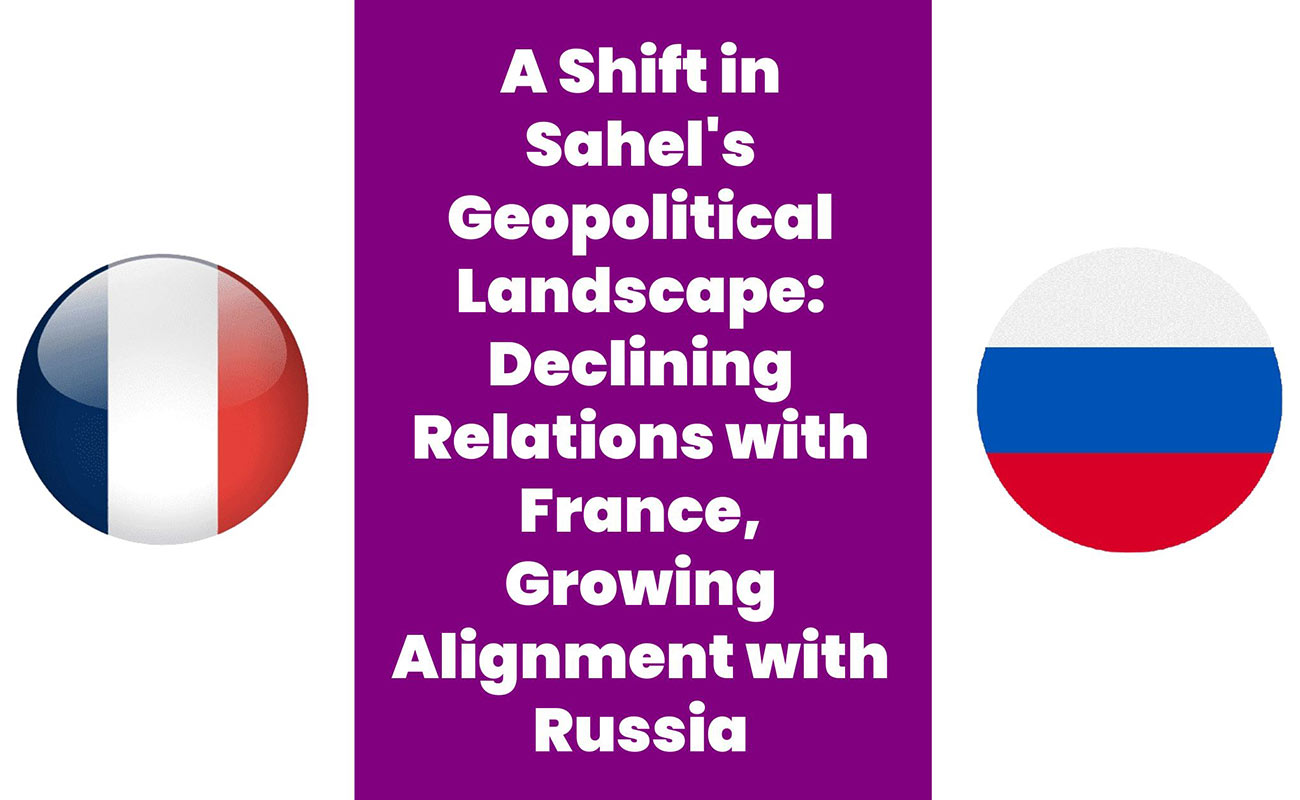
By Elizabeth Ibe
France shortcomings in its engagement with Niger, Mali, and Burkina Faso have inadvertently created an opportunity for Russia to capitalize on the situation, by intensifying its efforts to bolster its presence in the Sahel region of Africa while diminishing Western influence.
France historical involvement in the Sahel dates to the colonial period, and since then it maintained a significant presence in the region. In the post-independence era, these countries still maintained close ties with France in various areas such as trade, military, and even politics. Expectations from the relations between France and these Sahel states include economic growth, and stable political system. However, that was not the case as these Sahel states still struggled with a lot of problems ranging from political instability to security threats and economic challenges.
Overtime, frustration grew among Sahel states, leading to the spread of anti-French sentiments across the region. This was due to France inability to quit interfering in their domestic politics, profiting from an unequal economic tie, growing security concerns, and Islamic insurgencies. This dissatisfaction created an opening for Russia to establish new partnerships, as they viewed it as a strategic opportunity.
The subsequent expulsion of French soldiers from Niger, Mali, and Burkina Faso following their transition to military rule, and the formation of the Alliance of Sahel States, provided the groundwork for Russia’s expanded presence. The Kremlin’s strategic interests in the region, coupled with its ability to provide support where France fell short, have enabled it to curtail Western influence and bolster its own influence. The Kremlin is providing them with diplomatic backing, and security assistance.
Unlike France approach, which often led to accusations of interference, Russia’s support for military regimes in the Sahel garnered favor among Sahel leaders. Asides recognizing the military governments in these countries, the Kremlin has also established its military base in these states, and created a new military structure called Africa Corps, which will replace the Wagner group (its private military unit) and be directly controlled by the state as it would be under the Russian defense ministry. The Kremlin is also providing the Sahel states with military training and equipment to help address their security issues.
As these Sahel nations pivot towards Russia, they are recalibrating their relationships with France and the West. For instance, Burkina Faso’s actions, including the expulsion of French troops, accusations of French diplomats for espionage and “subversive activities”. What are the subversive activities, or is this just a ploy to keep France out of their way?
Similarly, the situation in Niger likely reflects dynamics of realignments and shifting alliances in response to evolving geopolitical interests. Russia’s agreement to deploy an anti-aircraft system to Niger aimed at safeguarding its airspace and the presence of Russia’s military trainers signify an intensified response to realignment, especially one with high interest. In Mali, the situation appears to be the same.
The burgeoning ties between Russia and the Sahel states, propelled by increased support from the Kremlin, holds considerable promise and has the potential to yield more favorable outcomes compared to the longstanding ties between France and these Sahel states. The assistance provided by Russia to these nations has prompted other Sahel states, including Chad, to reevaluate their alliances and lean towards Russia. This underscores the Kremlin’s rising influence and significance in the region and the efficacy of its support.
However, it is crucial to recognize that the Sahel states’ pivot towards Russia primarily stems from mutual interests. This signifies that their allegiance can shift if Russia fails to fulfill their needs or ceases to align with their interests, allowing for potential realignment with other actors in the international system. Now the key question that emerges is whether the assistance from the Kremlin would be enough to help the Sahel states defeat the Islamic Insurgents? The outcome remains uncertain as to whether this shift will mitigate the extremist violence that has destabilized the region for years. As the West appears to step back, assuming a more passive stance, it observes as the Sahel adapts to this new geopolitical reality.
